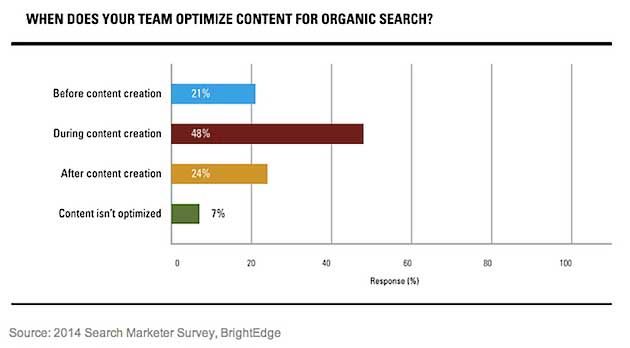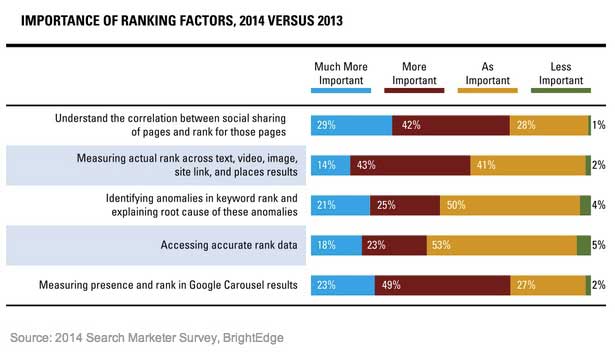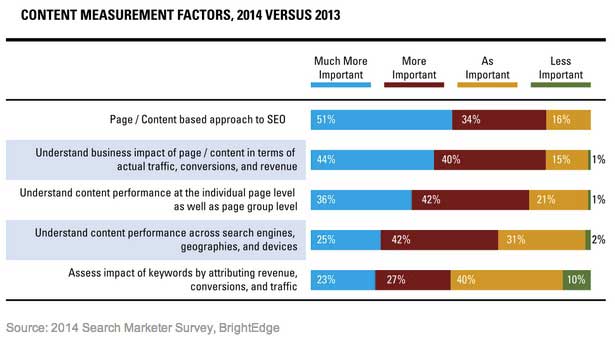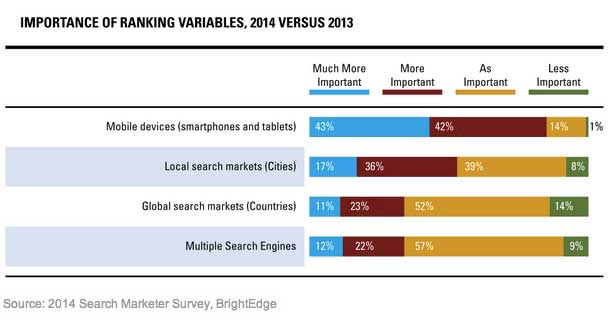Most search engine-optimization (SEO) practitioners (71%) say understanding the link between social sharing and search rankings is more important in 2014 than it was last year, according to a recent report from BrightEdge.
Measuring rank in Google Universal Search results (those that include photos, videos, etc.) is also seen as increasingly necessary by SEO professionals (57% say it is more important in 2014), as is measuring presence and rank in Google Carousel results (72% view as more important).
Less than half (46%) of respondents say finding anomalies in keyword rank is more important this year than last, perhaps reflecting the search engines' changing emphasis on keywords as a ranking factor.
Below, additional key findings from the report, which was based on data from a survey of a community of 20,000 SEO practitioners representing over 8,500 brands.
Approaches and Measurement
- 85% of respondents say taking a page/content-based approach to SEO is more important in 2014 than it was in 2013.
- 84% say knowing the ultimate impact of pages and content in terms of traffic, conversions, and revenue is now more important.
- 78% say grouping pages in a way that aligns with business units and product types, just as they already group keywords, is more important.
- Only 50% say measuring the business impact of keywords is more important in 2014, again perhaps reflecting keywords' changing role in SEO.
Ranking Variables
- 85% of respondents say measuring rank across mobile devices such as tablets and smartphones is more important in 2014 than it was in 2013.
- 53% say measuring rank in local search search markets is more important in 2014.
Content Performance
- 83% of respondents say increasing content performance by optimizing for organic search is more important in 2014 than it was in 2013.
- 55% say their content could be more search-engine-friendly.
- 48% of SEO practitioners say their organization's content is optimized for organic search during content creation, 24% after content creation, 21% before content creation, and 7% say it isn't optimized at all.

About the research: The report was based on data from a survey of search marketing professionals representing over 8500 brands.







